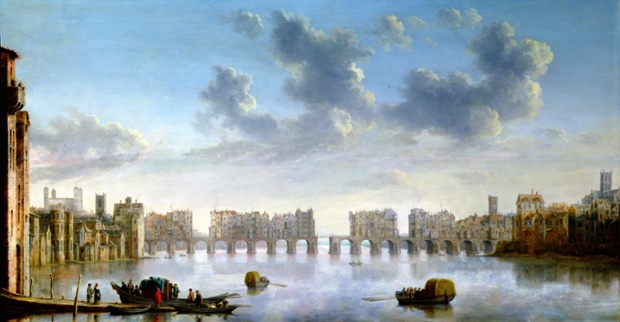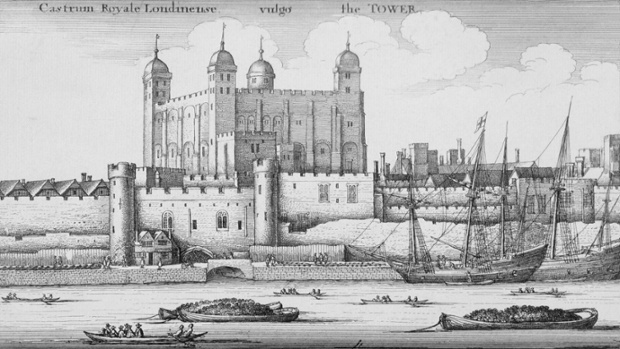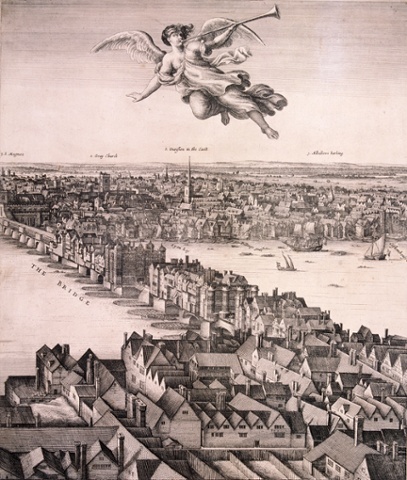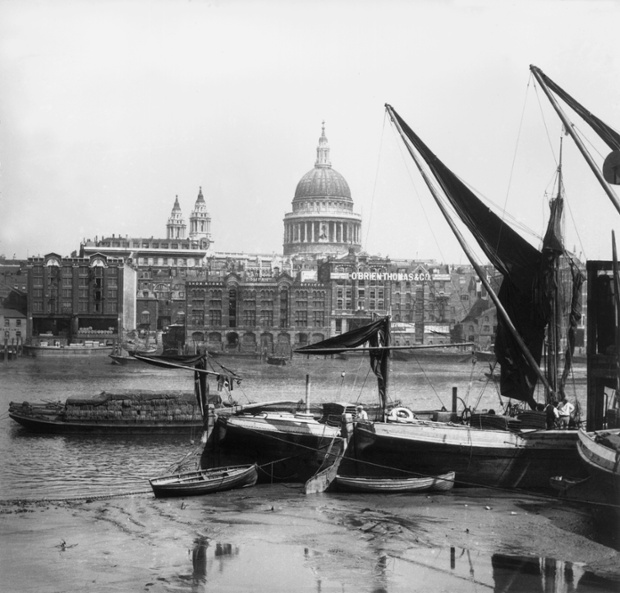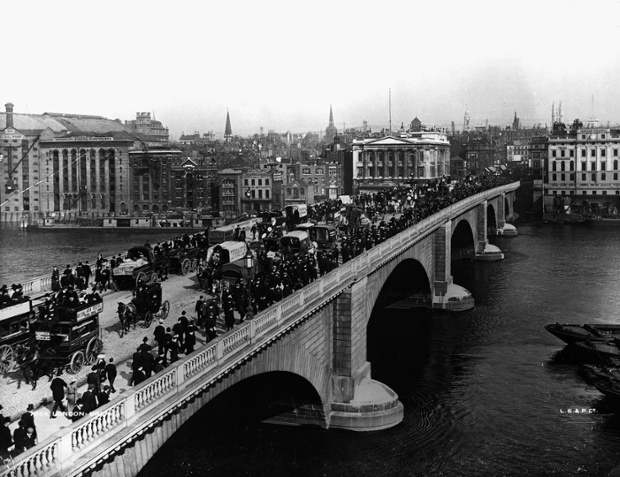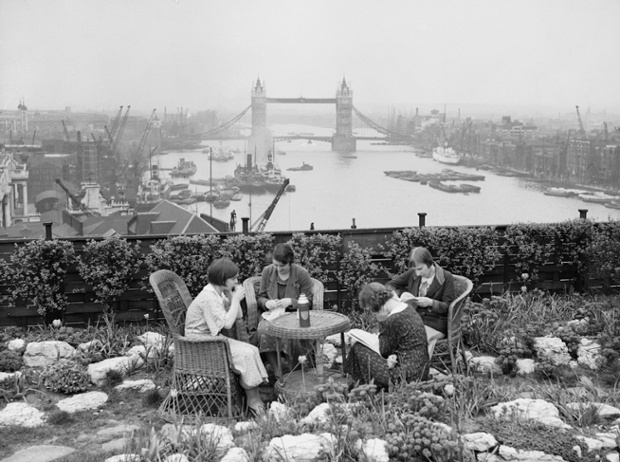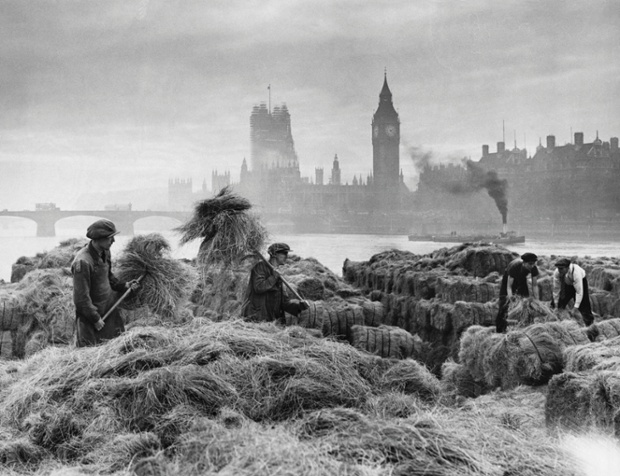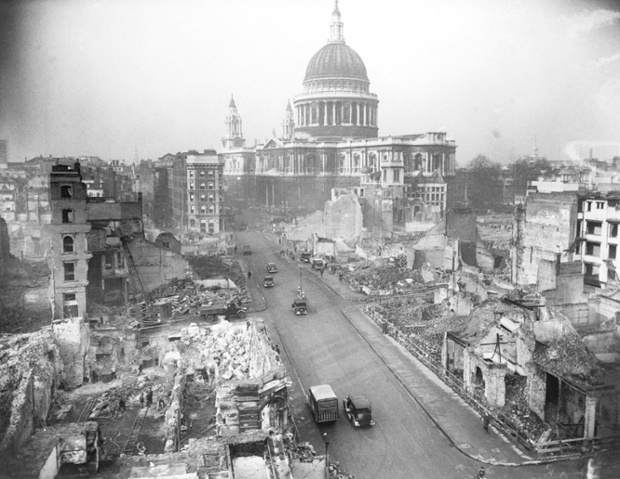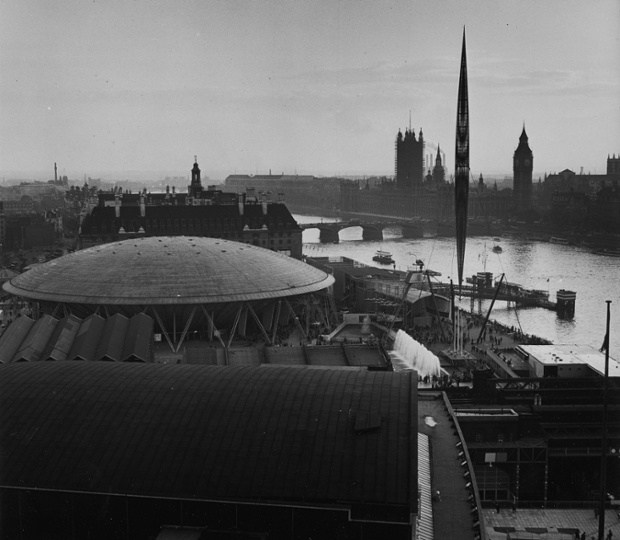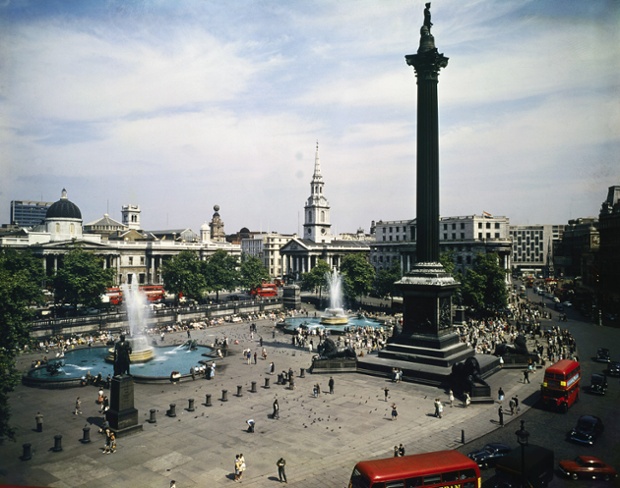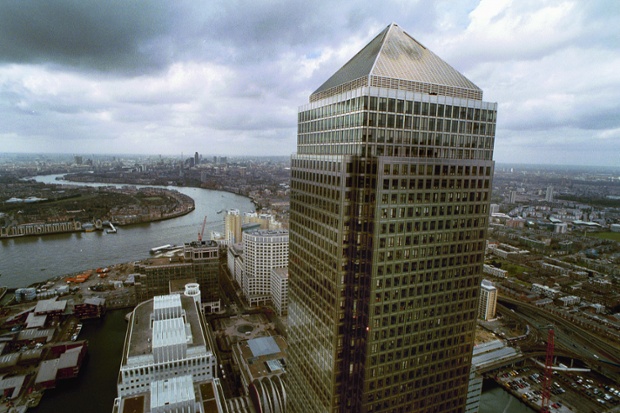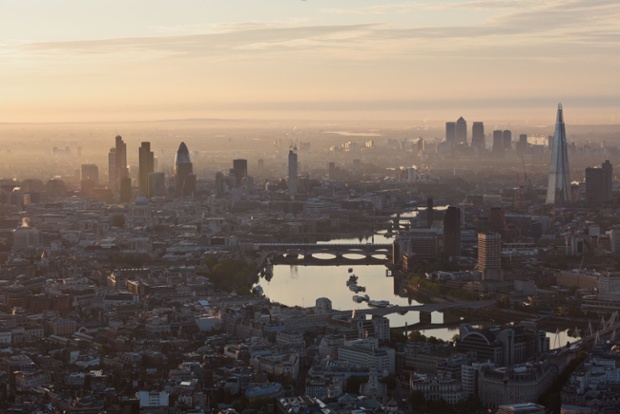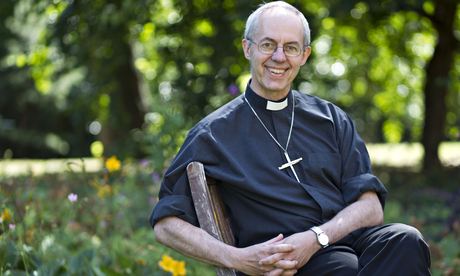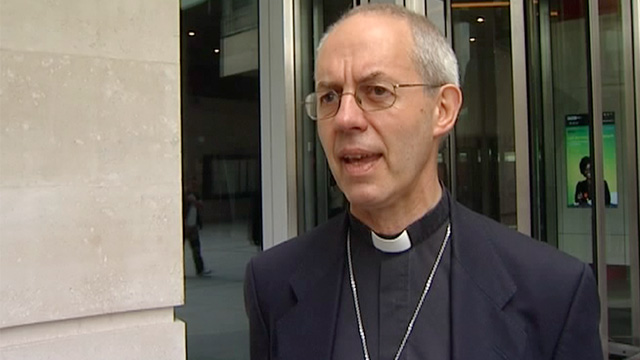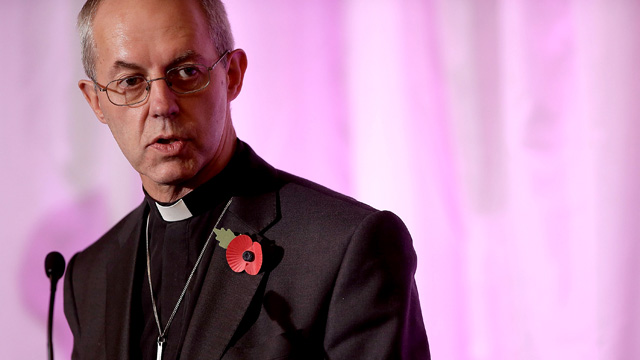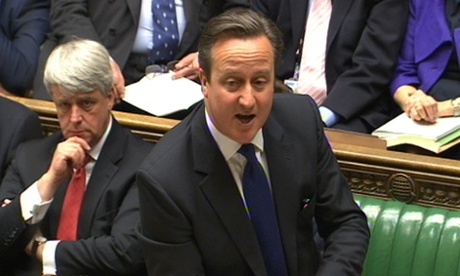Justin Welby
now looks like the best archbishop of Canterbury the Church of England
could possibly have, but when he was appointed he was almost unknown,
and had only been a diocesan bishop for nine months. What got him the
job – after he had made the shortlist – was that he was the only
candidate who did not deny or flinch from the internal research
suggesting that the church would dwindle, on existing trends, from about
one million committed members to 150,000 by 2050.
His first year
in the job has been marked by tremendous energy and rather more physical
and moral courage than is expected of an archbishop, but there is a
tremendous sense of urgency underlying this display.
He has already had two notable successes, and one of them will last. He has led the church past the
General Synod's traumatic failure to approve female bishops in 2012, so that it seems certain that some will be appointed next year; and in the summer
he managed to get the whole country talking about loan sharks and thinking of the Church of England as an organisation more concerned with the evils of payday lending than of sex.
He denounced payday lenders as evil in the
House of Lords. Within a day the
Financial Times discovered that the church itself had an indirect investment in Wonga through
a fund in which its pension fund invests. Welby was furious when he
discovered this but in public, on the Today programme, simply and
disarmingly admitted it was a mistake. The whole thing was an
improvisation that did him a great deal of good. His bold statement that
the church could instead invest in credit unions that would "compete
Wonga out of existence" was never really tested. What got through was
the unmistakable sincerity of his rage and pity for the victims of such
lenders and his determination to do more than seems possible, even if
it's much less than is needed.
He has not been able to heal the
international schism over homosexuality, which has, if anything, grown
worse in the last year. The archbishop of
Nigeria,
Nicholas Okoh, who was an enthusiastic backer of a law that makes it punishable with a jail sentence even to talk about
gay marriage, said recently: "Women are not scarce, men are not scarce and God has made adequate arrangement for human
sexuality,
so anybody who is developing any extra sexual instinct or desire, I
think such a person should attend to himself because there is something
wrong."
Link to video: Justin Welby: Wonga investment should not have happened
'An executive type'
Only a tiny minority of members of the
Church of England would say things like that, although some would only
regret Okoh's lack of ambiguity. Welby might have been one of them 15
years ago but he has changed since then, and he understands that the
country has changed too. He will not be able to hold on to the
Nigerians, or the Church of
Uganda,
another enthusiastic backer of homophobic laws. But he is making
strenuous efforts to hold together as much as possible of the remains of
the Anglican Communion, although there is no longer any pretence that
this is a coherent body with discipline and doctrines of its own. One of
Welby's closest advisers dismissed that idea as "a Roman Catholic
fantasy".
That's only one of the sacred cows he has been
slaughtering. In many respects, he has behaved like a business
executive, with, in private, a remarkably hard-nosed realism no matter
how uplifting he has been in public. "He's definitely an executive
type," says one senior colleague. "He thinks in those terms. He operates
in those terms. He's willing to make quite big moves."
The most
obvious example of this dynamism was his recovery from the synod's
fiasco over female bishops in 2012, when legislation that would have
made it possible to choose women as bishops was blocked by a rump of
conservative evangelical lay people, elected through an arcane system of
committees that ensured they were wholly unrepresentative. Welby's
reaction was threefold. First, he co-opted a number of senior women on
to the committees previously reserved for bishops, so that they had
access to real power. He pushed the synod into drastically shortening
its timetable for legislation, so the mistaken vote could be undone in
two years instead of five. And he set up a process of reconciliation and
informal face-to-face negotiations between supporters and opponents.
None
of this might have worked without the shock and revulsion felt in the
wider church – and in parliament – at the failure of the earlier
legislation. But this reaction would not on its own have shaken the
defences of the conservatives, who were still resisting last summer.
Only the personal and institutional pressure that Welby applied had that
effect, and by February this year the opponents had accepted a much
worse deal than they had earlier rejected, yet seemed happier about it.
This was not entirely because accepting inevitable defeat meant they
could continue to wrangle about gay clergy for the foreseeable future.
When
first chosen, it seemed the most notable thing about Welby was that he
had been a successful businessman: a man who understood money and could
chastise bankers in their own language. But looking back after his first
year, the most notable thing is less his civilian job than his
formation in the peculiarly English upper-class
Christianity
of Eton, Cambridge and Holy Trinity Brompton (HTB). These are the
places where Christianity is still part of the culture in a way that
just isn't true elsewhere.
Welby's background was a startling
mixture of privilege and insecurity. On his mother's side he was
descended from five generations of colonial administrators. She had been
a secretary to Winston Churchill; among her close relatives were Lord
Portal, who ran the RAF, and RA Butler. His stepfather was a
distinguished theologian. But his father, who soon divorced his mother,
had only appeared to be an Englishman called Gavin Welby. In fact –
unknown to his English family – he was born in a Jewish-German immigrant
family called Weiler, made his first fortune bootlegging in New York
during prohibition, and died an alcoholic who had left the last two
years of Welby's school fees at Eton unpaid.
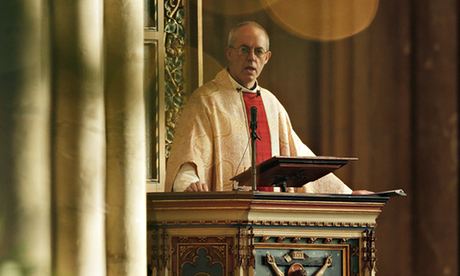 Welby delivers his Christmas Day sermon at Canterbury cathedral last year. Photograph: Matthew Lloyd/Getty Images
Welby delivers his Christmas Day sermon at Canterbury cathedral last year. Photograph: Matthew Lloyd/Getty Images
Gavin Welby was a figure of enormous charm and energy, but entirely
unreliable and mysterious even to those closest to him. At Eton Welby
was not among the fashionable boys. He was much later described by his
housemaster with wonderful condescension as "a model boy, though quite
undistinguished". He was not a Christian then: he had had the
conventional upper-class socialisation of tedious hymns and meaningless
sermons, which normally functions as a vaccine against religious
fervour. But at Cambridge he was converted by an extraordinary group of
earnest upper-class evangelicals, who now, 30 years later, have taken
over the Church of England.
The group that later became the core
of the HTB movement was, from the outside, quite ludicrously posh. Five
of them, for example, were called Nicky and four of those had been to
Eton. They came out of a culture of clean-living, rugger-playing
manliness that seemed little changed since the first world war – in one
sermon preached at HTB in this century, the subject of oral sex was
dismissed with the words "Chuck it, men!" In fact, though, this had been
a deliberate anachronism planted in the 1950s and operating through
summer camps that recruited through the public-school network.
And
just as their tradition was a little bit phoney, so was their place at
the heart of the establishment. Three of the core group (Nicky Gumbel,
who more or less invented the Alpha course, Ken Costa, who became a
fantastically rich banker, and Welby himself) were partly Jewish, though
Welby did not then know his father's real identity. They had the
self-assurance to appear absurd, with their earnestness and the tracts
they handed out, but not, perhaps, the self-assurance to suppose they
deserved all their privilege.
Enthusiastic Christianity was
certainly not in the mainstream at Eton. The ungenial contempt of more
secular Etonians is nicely captured by an entry in
Alan Clark's diaries about
Michael Alison, a Tory politician who was also a churchwarden at HTB:
"Saintly but useless. You need someone with guile, patience, an easy,
fluent manner of concealing the truth but drawing it from others in that
job. It is extraordinary how from time to time one does get people who
have been through Brigade school, taken their commission and served,
seen all human depravity as only one can at Eton … and yet go all naive
and Godwatch."
In fact, the form of Christianity to which Welby
was converted as an undergraduate did emphasise the worthlessness of
unredeemed humanity. It wasn't really naive at all. "Guile, patience,
and an easy, fluent manner" distinguish Etonian Christians as much as
Etonian pagans. It's just that the Christians want to tell you the truth
as well.
Christian rebels
For a man with a well-deserved
reputation for honesty and straight dealing, Welby has said some
staggeringly untrue things – most famously
when he told Giles Fraser that he was "one of the thicker bishops in the Church of England".
He has an unforced relish in things of the mind – he loves the
efflorescence of Nigerian English for its own sake – but he is not an
intellectual. He doesn't build systems – he looks for what works.
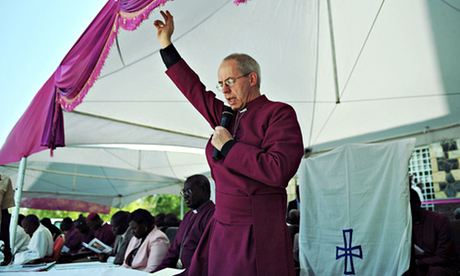 Welby during a two-day visit to South Sudan. Photograph: Carl De Souza/AFP/Getty Images
Welby during a two-day visit to South Sudan. Photograph: Carl De Souza/AFP/Getty Images
But self-deprecation of that sort doesn't count as dishonesty when no
one (at least no one in the club) is meant to take it seriously, and it
is in any case flattering to all the other bishops.
The young
Cambridge Christians, so outwardly conventional, were in one respect
rebels against everything they had been taught. They embraced
wholeheartedly the charismatic revival – talking in tongues, miraculous
healing, fainting in the spirit, and even prophecies – all things
anathema to the older Calvinist tradition that was then dominant among
Cambridge evangelicals. Their teacher in this was a bear-like
Californian, John Wimber, who had been the drummer for
the Righteous Brothers,
and founded the immensely successful Vineyard group of charismatic
churches. Quite a number of people brought up in the emotional
straitjackets of the English upper classes found blessed relief in the
permission the Holy Spirit gave them to weep or laugh and gibber and
faint in public. In the mid-1990s, when the movement's influence on HTB
was at its height, I visited a Chelsea church run by Nicky Lee, one of
the men who converted Welby at Cambridge, and when the Holy Spirit
started knocking people down, I'd hear the distinct rattle of pearls
when the young women fainted to the floor.
This current of
life-giving absurdity electrified them and gave those earnest young
prigs the means to change over the years, even after they had become
successful. The Holy Spirit gave them permission to be weird, and to
navigate the collapse of traditional Christianity, which left an earlier
generation of evangelicals stranded in reactionary nostalgia.
Asked
what he had learned since his conversion, Welby said: "The longer you
go on, the more I realise the infinite and amazing and wonderful
diversity of human beings and what they do. Grace is at the heart of
Christian faith and not law. The church isn't principally about rules.
It's about a relationship with Jesus Christ, and he shapes people's
behaviour. The street pastors, helping people at 3am on a Saturday
morning who are drunk out of their minds, are not going to give them a
lecture about drink. They're just going to help them to get home. The
church is not a place where good people go. It's a place where bad
people go to meet God. It's a refuge for sinners."
When Welby left
Cambridge he dithered for a bit and then found a job working for a
French oil company, Elf Aquitaine. More importantly, he married Caroline
Eaton, a classics student at Cambridge, whose sister was for a while
the vicar's secretary at HTB: the networks remained incredibly tight. In
their summer holidays the couple went Bible smuggling together behind
the iron curtain. Caroline Welby still accompanies him on some foreign
trips, most recently a harrowing journey through the war zones of
South Sudan
and the eastern Democratic Republic of the Congo. On that trip, as he
later told the synod, they walked through a Sudanese town where 3,000
people had recently been killed. The bodies of 22 people from the
cathedral staff – murdered and, if women, raped as well – were waiting
for the archbishop to bury them in a mass grave. Yet he keeps going
back. He doesn't flinch.
From oil man to vicar
This life
is an enormous distance from the future he had when he was an oil man in
Paris – though that is where his visits to Nigeria started. The newly
married couple lived in France for five years. Their first child,
Johanna, was born there. When she was seven months old he was promoted
to a job in London, but on the journey in the car with Caroline they
crashed. Johanna was thrown clear in her carrycot and died in hospital
three days later. The Welbys went on to have five more children but the
experience of bereavement stayed with them. Welby's unofficial and very
evangelical biographer claims that Caroline Welby's immediate reaction
after the crash was that "maybe somehow she was at fault for not praying
hard enough before the journey".
This shows the way in which God
appeared to the young people of HTB as a permanent presence and
companion, with opinions on everything – an omnipotence somewhere
between a father and a nanny. Later, visiting a Vineyard church in
California, they came to a more balanced view. It is a very notable
feature of Welby's Christianity that much of it has been formed outside
the Church of England, both in the charismatic evangelical Vineyard
network, and later through contacts with Roman Catholics: he has invited
a Catholic community to live and pray full-time in Lambeth Palace.
Link to video: Justin Welby 'astonished' by archbishop of Canterbury appointment
After a year in London working for Elf Aquitaine, Welby was
headhunted by Enterprise Oil, a company formed to exploit the
privatisation of British Gas's North Sea assets. In the five years he
worked there as treasurer, it grew to be one of the 30 largest companies
on the stock exchange. By that stage, his salary was more than £100,000
a year. He threw it all in to become a vicar, and not even a
fashionable one.
He trained in Durham, rather than one of the
Oxbridge seminaries, then spent 15 years serving the Coventry diocese.
His energy, intelligence and experience marked him out for promotion
even in an organisation as sclerotic and short-sighted as the Church of
England can be. Coventry cathedral, because of its destruction by the
Luftwaffe in the second world war, has specialised in teaching and
practising reconciliation, and Welby was drawn into this work early on.
He travelled almost everywhere where Christians were killing or being
killed – he has made 70 visits to the dangerous regions of Nigeria, and
in 2003 made an overland dash to Baghdad from Jordan in company with
Andrew White, another HTB figure who became the Anglican vicar of
Baghdad. Several times he texted Caroline because he thought he might
imminently be killed.
Realism
From Coventry he moved to become the dean of
Liverpool
cathedral, a building emblematic of the Church of England's troubles:
it stands gigantic, architecturally remarkable, largely empty and almost
broke in an indifferent and rather hostile city. He sorted the finances
within the first three years. Cathedral attendance went up, as
attendance in almost all cathedrals has done in the past 10 years. He
had the bells play John Lennon's anti-theist song Imagine as part of an
arts festival, which shocked some people but helped to restore the sense
that the cathedral was connected to the city's imagination.
When
he was promoted to be bishop of Durham, one of the church's most senior
posts, few were surprised. But his approach was astonishingly effective
and free of pretension. At the time he said: "The longer I go on with
this, the more I realise that the Church of England is not an
organisation in any recognisable sense. Because bishops are dressed up
in funny clothes, with funny hats and special sticks, it's assumed that
if they say to a bunch of parish clergy: 'Do something,' they will do
it. But that's not how it works and never has been."
Within months
he had circulated a document in the diocese saying that without realism
about finances the whole thing would collapse within 15 years. He
urged, and put through, a reform of the funding system in which parishes
were allowed to decide for themselves what they could afford to pay the
central authorities, instead of being assessed. On the other hand, they
would be expected to pay what they had honestly promised. Currently,
40% of them do not.
This kind of realism has carried through to
his time in Canterbury. He works there in small groups of no more than
six or seven, which debate decisions thoroughly before they are taken.
He quickly culled the old guard at Lambeth and appointed an eclectic
team, including, Jo Bailey Wells as his chaplain, who had been working
with her husband in the US for eight years when chosen. He is by nature
impetuous says one well-placed observer, and this way of working is a
deliberate check on his temperament. But once decisions are taken, they
are driven through effectively. One of these groups is planning a huge
cull of ecclesiastical regulations. The aim is to make it much easier to
plant new churches, reopen old ones, and close down those that can no
longer be sustained. "That sort of thing needs to change very
dramatically," he says.
He really does believe in the possibility
of church growth, even though he is realistic about the fact of decline
and the danger, on present trends, of complete collapse. Asked about the
thesis that
religion
is now a toxic brand, especially to the young, he says: "A lot depends
on how you ask the question. We've got a lot of churches with loads of
young people, but I half accept the premise … there is an element of
toxicity in the brand with some people. What's absolutely essential is
to demonstrate and talk about the love and goodness of Christ and how he
reaches out to people, rather than telling people how to behave."
The
trouble is that most of his church still supposes that telling people
how to behave is the best part of Christianity and telling other
Christians how to behave is quite the most enjoyable part. The schism
over homosexuality looks impossible to heal. HTB used to be implacably
opposed, as it once was opposed to divorce, but now has moved to a
position of pained silence. Welby himself was profoundly shocked by the
reaction to his opposition to gay marriage in the House of Lords. Now he
says that the fight is over: "The church has reacted by fully accepting
that it's the law, and should react on Saturday by continuing to
demonstrate, in word and action, the love of Christ for every human
being."
But in Africa the movement has been sharply the other way.
People around the archbishop are horrified by reports that two
suspected gay men have been burned alive by mobs in Uganda who were
celebrating the passage of an anti-gay law enthusiastically supported by
the Ugandan Anglican church. But there is no pressure that he can apply
that does not risk being dismissed as neocolonial interference.
The African opponents of gay people have coalesced into an alternative version of the Anglican Communion, called
Gafcon.
This has close connections with parts of the HTB movement that are
planning to split from the Church of England formally if it moves
towards open recognition of gay relationships. Welby himself spoke to
the Gafcon primates before their most recent meeting, but did not attend
it. He assured them of his admiration for their courage and that he had
listened carefully to their view on sexuality.
In its studied
absence of guile, this was reminiscent of De Gaulle telling the Algerian
settlers that he had heard them – which they, to their cost,
misunderstood as saying he had joined their side. Welby has not joined
either side in the debate quite yet. Some clergy will undoubtedly marry
their same-sex partners, despite the orders from bishops – among them
Welby – that they refrain from doing so. But the discipline in those
cases will be a matter for the individual bishops. The archbishop has
positioned himself a little above the fray. This is characteristically
diplomatic and realistic, as no one knows whether there are in fact
legal ways to punish vicars who marry legally.
But it is also part of his belief that Christians ought to be able to "disagree well together".
The
job of archbishop of Canterbury is of course impossible. Welby sleeps
six hours a night (if that), he travels relentlessly, and his diary is
crammed: for this article he could talk for 10 minutes on the telephone,
booked 10 days in advance. No one I spoke to who had worked with him
did not trust him, but no one felt they knew him, either. He is in the
establishment now, but not on its side, despite his privileged
background – or perhaps because of it. His commitment to the poor and to
the victims of loan sharking made a huge impression in Durham. But
perhaps he is not so very far from his roots after all.
This mild
man is oddly reminiscent of General Conyers, a character created by the
rather more conventional Etonian Anthony Powell: "He was a man who gave
the impression, rightly or wrongly, that he would stop at nothing. If he
decided to kill you, he would kill you; if he thought it sufficient to
knock you down, he would knock you down: if a mere reprimand was all
required, he would confine himself to a reprimand. In addition to this,
he patently maintained a good-humoured, well-mannered awareness of the
inherent failings of human nature: the ultimate futility of all human
effort."
Except, of course, that archbishops do not nowadays kill
anyone, and Welby is sure that human effort is not in fact ultimately
futile, because God notices and pities it.
• This article was
amended on 18 April 2014. The earlier version said Justin Welby's first
parish was a working-class suburb of Coventry, and that he remained
based in the city for 10 years. His first parish was within the Coventry
diocese, but in Nuneaton.

